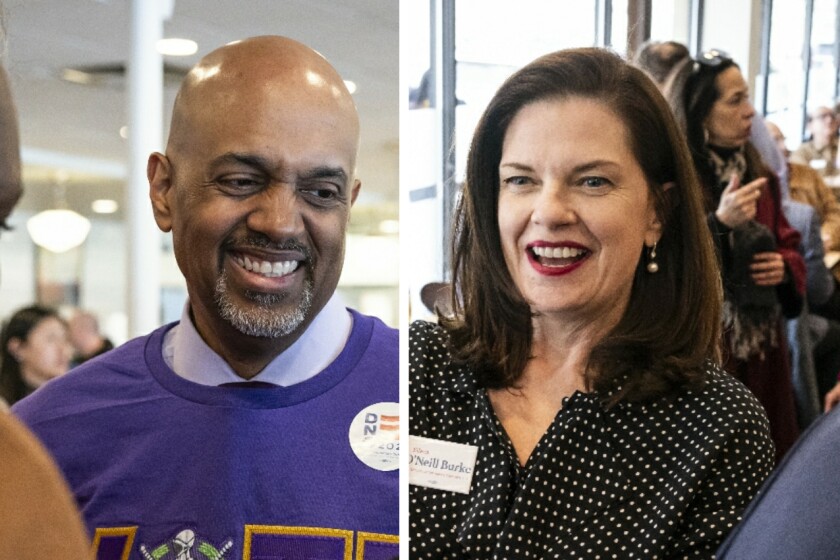Our recent contest for the Democratic candidate for Cook County state’s attorney was a “nail-biter.” The reminder here is that every vote from every neighborhood really does count. Citizens of Cook County ought to be chagrined at the fact that 18% of registered voters in the suburbs and a little over 25% of registered voters in the city bothered to take part in race that was won by a little over 1,500 votes out of hundreds of thousands ballots cast.
The second observation, though, is that in a time where many bemoan the quality of our political candidates, we had, in fact, the choice of two excellent, well-qualified, well-intentioned candidates. Both were eager to serve the people of Cook County. I believe that Eileen O’Neill Burke will serve us well. I also believe that Clayton Harris III would have proven to be a highly capable public servant. We should all take a moment to thank them both for their willingness to enter the ring of competition and to campaign and persevere through an extended counting process that was a textbook case of respectful democracy in action.
Andrew Davis, Lincoln Park
SEND LETTERS TO: letters@suntimes.com. To be considered for publication, letters must include your full name, your neighborhood or hometown and a phone number for verification purposes. Letters should be a maximum of approximately 375 words.
Choose qualified contractors when you go solar
As the solar industry continues its rapid expansion across Chicago, it’s more important than ever that residents understand the role expertise plays when installing these complex renewable energy systems. Proper installation by qualified professionals ensures safety, maximizes efficiency and longevity, and fully realizes the financial and environmental benefits of going solar.
Installing photovoltaic systems is no simple task. Improper practices can lead to decreased system output, safety hazards like fire risks, frequent malfunctions that shorten system lifespan, roof damage from poor waterproofing, and an increased carbon footprint that undercuts the sustainability goals of solar adoption.
That’s why choosing the right solar contractor is so critical. I urge Chicagoans to prioritize hiring licensed and insured electrical contractors who hold distributed generation installer certification from the Illinois Commerce Commission. Qualified contractors offer comprehensive services, are well-versed in local building codes and permitting, and employ a qualified supervising electrician as required by the City of Chicago.
Powering Chicago’s signatory electrical contractors employ IBEW Local 134 electricians who undergo advanced safety training and follow stringent installation standards like those in NFPA 70B to enable 25-plus years of proper system maintenance. Investing in their services pays dividends by optimizing your system’s performance and longevity. By choosing an electrical contractor based in Chicago, you ensure a lasting service and regular maintenance partnership for your clean energy investment.
As we navigate this solar energy shift, cutting corners on installation jeopardizes the very benefits we’re pursuing through sustainability initiatives. Respect your investment by partnering with qualified, experienced professionals you can trust.
Elbert Walters III, executive director, Powering Chicago





